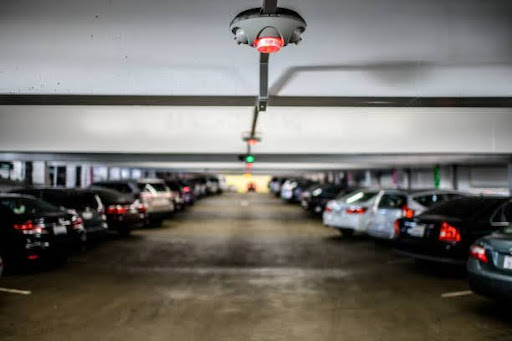Parking management solutions are very crucial in today’s rapidly urbanizing world. Cities are facing unprecedented challenges in managing their transportation systems and infrastructure. One area that has long been a source of frustration for both city planners and residents alike is parking management. Congested streets, limited parking spaces, and inefficient parking systems not only contribute to traffic gridlock but also have a significant impact on air quality, carbon emissions, and overall quality of life.Thankfully, advancements in technology have paved the way for innovative parking management solutions that promise to revolutionize urban mobility. In this comprehensive guide, we will explore the transformative potential of smart parking solutions.
The Challenges of Traditional Parking Management
Before delving into the world of smart parking solutions, it’s essential to understand the limitations of traditional parking management approaches. Historically, cities have relied on static signage, parking meters, and manual enforcement to regulate parking. However, this approach is inherently inflexible, labor-intensive, and often fails to address the dynamic nature of parking demand.

The Urban Parking Predicament
Urbanization has led to a surge in the number of vehicles on our roads, exacerbating the challenge of finding suitable parking spaces. Traditional parking systems often struggle to keep up with the demand, resulting in congestion, frustration, and wasted time for motorists. This not only adds to traffic congestion but also contributes to pollution and decreases the overall quality of life in cities.
Introducing Smart Parking Solutions
Smart parking solutions offer a ray of hope in the midst of this urban parking chaos. By leveraging cutting-edge technology, these solutions aim to optimize parking resources, reduce congestion, and enhance the overall urban experience. From sensor-based systems to mobile applications, smart parking solutions offer a range of features designed to streamline the parking process and improve accessibility for all. Some of those solutions are:
1. Sensor-Based Technology: A Game-Changer
At the core of smart parking solutions lies sensor-based technology. These sensors, installed strategically in parking facilities, detect the presence of vehicles in real-time. By continuously monitoring occupancy levels, these sensors provide accurate data on parking availability, enabling motorists to quickly locate vacant spaces. This not only reduces the time spent circling in search of parking but also minimizes traffic congestion and emissions.

2. Data Analytics: Uncovering Insights
In addition to real-time monitoring, smart parking solutions harness the power of data analytics to uncover valuable insights into parking patterns and trends. By analyzing historical data, city planners can identify peak parking hours, popular locations, and areas of high demand. Armed with this information, authorities can optimize parking allocation, deploy resources more effectively, and implement targeted interventions to alleviate congestion.
3. Mobile Applications: Convenience Redefined
The proliferation of smartphones has further revolutionized the parking experience through intuitive mobile applications. These apps enable users to find nearby parking facilities, reserve spots in advance, and even pay for parking seamlessly through their mobile devices. By integrating with navigation systems, these applications offer real-time guidance on available parking spaces, helping drivers navigate congested urban landscapes with ease.
4. Design Efficient Layouts
Optimize parking lot layouts for maximum space utilization and ease of navigation. Clearly mark designated parking spots, pathways, and entrances/exits to minimize congestion and confusion.
5. Implement Clear Signage
Install clear signage throughout the parking facility to guide drivers to available spaces, designated areas, and amenities. Well-placed signs reduce frustration and enhance the overall user experience.

6. Prioritize Safety and Security
Implement measures to enhance the safety and security of the parking facility, such as adequate lighting, surveillance cameras, and emergency call boxes. Regular patrols or security personnel can also deter vandalism and theft.
The Role of Public-Private Partnerships
Implementing smart parking solutions at a citywide scale requires significant investment in infrastructure, technology, and expertise. This is where public-private partnerships (PPPs) can play a crucial role. By collaborating with private sector companies specializing in parking management and smart city solutions, municipalities can leverage the latest technologies, benefit from economies of scale, and access expertise in data analytics and system integration.
PPPs also allow for risk-sharing and cost-effective deployment of smart parking solutions, enabling cities to implement these innovative strategies without overburdening their budgets or diverting resources from other essential services.
Park Smart With Next Level Valet Parking
In the quest for smarter cities, parking management solutions play an important role in addressing the challenges of urban mobility and sustainability. As you explore parking management solutions in Austin, consider partnering with experienced and reputable providers like Next Level Valet Parking in Austin. Next Level Valet Parking offers cutting-edge parking management services that combine technology, expertise, and a commitment to sustainability. Our team of experts can work with you to design and implement tailored solutions that address your unique parking challenges and contribute to the creation of a smarter, more livable urban environment. Reach out to us today.

